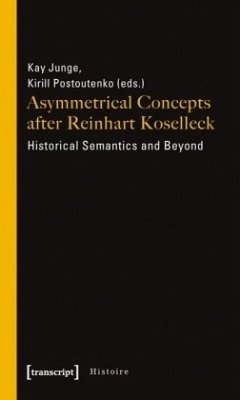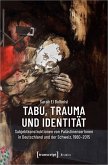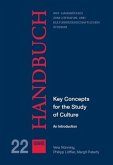Although the asymmetrical concepts have been well-known to scholars across the social sciences and humanities, their role in structuring the human world has never been an object of detailed research. 35 years ago Reinhart Koselleck sketched out the historical semantics of the oppositions »Hellenes«/»barbarians«, »Christians«/»pagans« and »Übermensch«/»Untermensch«, but his insights, though eagerly cited, have been rarely developed in a systematic fashion.
This volume intends to remedy this situation by bringing together a small number of scholars at the crossroads of history, sociology, literary criticism, linguistics, political science and international studies in order to elaborate on Koselleck's notion of asymmetric counter-concepts and adapt it to current research needs.
This volume intends to remedy this situation by bringing together a small number of scholars at the crossroads of history, sociology, literary criticism, linguistics, political science and international studies in order to elaborate on Koselleck's notion of asymmetric counter-concepts and adapt it to current research needs.








